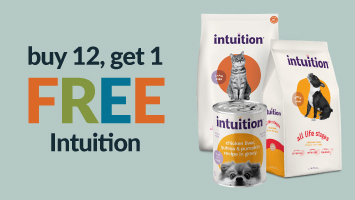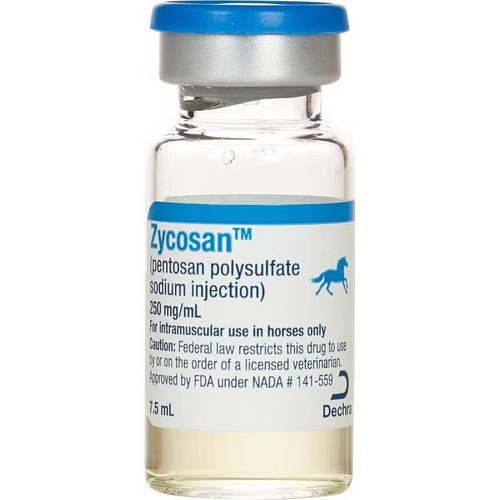Product details
Dexamethasone is a long-acting glucocorticoid (steroid) medication with several therapeutic uses, including the treatment of autoimmune or inflammatory conditions (e.g., asthma, allergies), hormone replacement, or as part of a chemotherapy protocol.
This product is an injectable solution- only administer as instructed by your veterinarian.
-
This sterile injectable solution contains dexamethasone, a glucocorticoid (steroid) medication, and is labeled for use in bovine and equine species as an anti-inflammatory agent.
-
Dexamethasone is used to treat various conditions in animals, including inflammatory conditions requiring glucocorticoid therapy, adrenal gland conditions, and autoimmune disorders.
-
Do not use this medication in food animal species (e.g., horses intended for food, veal calves).
-
May be prescribed for other animal species; please consult your veterinarian.
-
While this drug does not have an FDA-approved indication for all animal uses, it is commonly accepted for veterinarians to prescribe this medication for use in animals.
*Please note: This is a generic medication. Product packaging and appearance, including size, color, and shape, may differ from the description or images provided and are subject to manufacturer availability.
Product sourced directly from the manufacturer or their approved distributor. Guaranteed genuine product backed by the manufacturer.
For
Horses
Active ingredient(s)
Dexamethasone
Common brand names
Azium Solution, Dexium-SP, Dexasone
Drug class
Glucocorticoid, Injectable
Product strength & size
This sterile injectable solution may be available in multiple strengths and/or sizes. Please ensure the selected product and package size are appropriate for your pet, as recommended by your veterinarian.
For current availability, please refer to the product selection above.
Usage
Dexamethasone Injection solution should be administered as directed by your veterinarian.
Do not discontinue this medication abruptly, especially if your pet has been taking it for two or more weeks. Please consult your veterinarian before making any changes or discontinuing the prescribed dosing schedule.
Ensure your pet always has access to fresh, clean drinking water while taking this medication.
Injectable medications require needles, syringes, and a designated sharps disposal container. These are not included with the medication and must be purchased separately.
Please consult your veterinarian for guidance regarding appropriate needle and syringe sizes for your pet.
For general injectable use (aseptic technique):
Aseptic technique refers to a set of practices designed to minimize the risk of contamination and infection during medical procedures. These practices can also be applied to the handling and administration of injectable medications to your pet to help reduce the risk of post-injection bacterial infections.
Wash your hands thoroughly with soap and water before and after administration.
Use a new, sterile needle and syringe for each injection. Needles and syringes should never be reused.
Do not touch the needle, syringe tip, or vial stopper (once it has been wiped with alcohol) to any surface to avoid contamination.
Adequately clean and disinfect the vial stopper with an alcohol wipe, then allow it to dry before inserting the sterile needle/syringe.
Withdraw and administer the prescribed dose as directed by your veterinarian.
Dispose of the needle/syringe immediately after use into a proper sharps disposal container.
Missed doses
Administer the dose as soon as possible. If it is almost time for the next dose, skip the missed dose and continue with the regular schedule. Do not administer more medication than prescribed or two doses at once.
Storage
Store in a cool, dry place at a controlled room temperature (68 to 77°F), or as otherwise indicated by the manufacturer packaging/product insert. Protect from freezing.
Keep the vial protected from light and out of the reach of children and pets. Store away from heat and direct sunlight. Do not store in the bathroom, near the kitchen sink, or in damp places. The medicine may break down if exposed to heat or moisture.
Side effects
Many side effects of corticosteroids are linked to high doses or prolonged usage; however, side effects may still occur during short-term therapy. Your veterinarian may provide specific instructions to help avoid or lessen these effects.
The most common side effects of this medication are excessive thirst, urination, and/or appetite.
Other possible side effects include (but may not be limited to) dull/dry haircoat, weight gain, panting, GI effects (vomiting, diarrhea, GI ulceration), weakness, muscle wasting, and mild behavioral changes (e.g., depression, lethargy).
Contact your veterinarian immediately if your pet has complete appetite loss; high blood sugar; atypically low energy level; extreme behavioral changes (e.g., aggression), bloody vomit; or black, tarry stools.
Notify your veterinarian if your pet experiences any of the effects described above, or if you notice any other side effects that are persistent or troublesome.
If you notice anything unusual, please consult your veterinarian.
Precautions
Inspect the vial before each use. Do NOT use this medication if the solution changes in appearance (e.g., color, cloudiness, presence of visible particles, etc). These may be signs that the product is contaminated and no longer fit for use.
Do NOT discontinue this medication abruptly, especially if your pet has been taking it on a regular basis. Please consult your veterinarian before making any changes to the prescribed dosing schedule.
Do NOT use this medication in food animal species (e.g., horses intended for food, veal calves).
Do NOT administer this medication to animals with a current viral or fungal infection, tuberculosis, chronic nephritis (kidney inflammation), hyperadrenocorticism (Cushing’s disease), congestive heart failure, diabetes, osteoporosis, or that are taking any other anti-inflammatory (e.g., corticosteroids, NSAIDs) medications.
Use with caution in animals with a current systemic bacterial infection, kidney or liver impairment/disease, corneal ulcers, bleeding disorders, or hypertension (high blood pressure). Caution should also be exercised in young and growing animals when used long-term, as steroid medications can affect normal growth.
Steroid medications can weaken your pet's immune system, making it easier for them to get an infection (or worsen an existing one). Vaccines should not typically be administered while on this medication.
Safe use of this medication has not been established and should be used with caution in breeding, pregnant, or lactating animals. Discuss the risks of using this medication with your veterinarian if your pet is in one of these groups.
Do not administer to animals with a known history or suspected allergy/hypersensitivity to any corticosteroid drug, including this medication or any of its ingredients. Allergic reactions to medications may occur. Be sure to inform Vetsource and your veterinarian if your pet has any known drug sensitivities or allergies.
If your pet displays symptoms of an allergic reaction, discontinue therapy and call your veterinarian immediately or seek emergency veterinary attention. Symptoms may include (but are not limited to): swollen lips, tongue, face, or airways; difficulty breathing; agitation; profuse salivation; and widespread hives or itching.
Drug and food interactions
The following drugs* may have potential interactions with this medication:
aspirin, antidiabetic agents (including insulins), azole antifungals (e.g., ketoconazole), beta blockers (e.g., atenolol, sotalol), blood pressure medications (e.g., enalapril, telmisartan), calcium channel blockers (e.g., amlodipine, diltiazem), concurrent corticosteroids, cyclosporine, digoxin, potassium-depleting diuretics (e.g., furosemide, hydrochlorothiazide), fluoroquinolone antibiotics (e.g., ciprofloxacin), NSAIDs, opioids, phenobarbital, praziquantel, selegiline, tramadol, and warfarin.
*NOTE: this may not be a comprehensive list. Contact your veterinarian if your pet experiences any unusual reactions when different medications are given together.
Please ensure your veterinarian is aware of all medications and supplements that your pet is currently receiving. Your veterinarian may prescribe multiple medications, even if a potential drug interaction may occur. In these instances, your veterinarian may adjust the dosages or monitor your pet more closely.
Adverse reactions
If you are concerned that your pet has experienced an adverse reaction to this medication, please contact Vetsource Pet Owner Care at 877-738-4443.
Overdose
If you have any reason to suspect an overdose, call your doctor/veterinarian or the appropriate poison control resource immediately.
For humans:
The national toll-free Poison Help line, 1-800-222-1222, will connect you to your local poison center in case of emergency. This service is available nationwide and in most U.S. territories.
For animals:
The ASPCA Animal Poison Control Center is available 24 hours a day, 365 days a year at 888-426-4435.
Pet Poison Helpline® also provides a 24/7 animal poison control service at 855-764-7661.
*Please note: this information is for third-party services and is provided for convenience in case of potential poison-related emergencies. There may be consultation fee for these services.
Disclaimer
The content provided on this page is NOT medical advice.
All content, including the images and product description above, is intended for general informational purposes only and should not be considered a substitute for professional veterinary consultation, diagnosis, or treatment.
Consult your veterinarian for complete information about this product and how it fits into your pet's individual treatment plan.
Last revised: 7/22/2025














